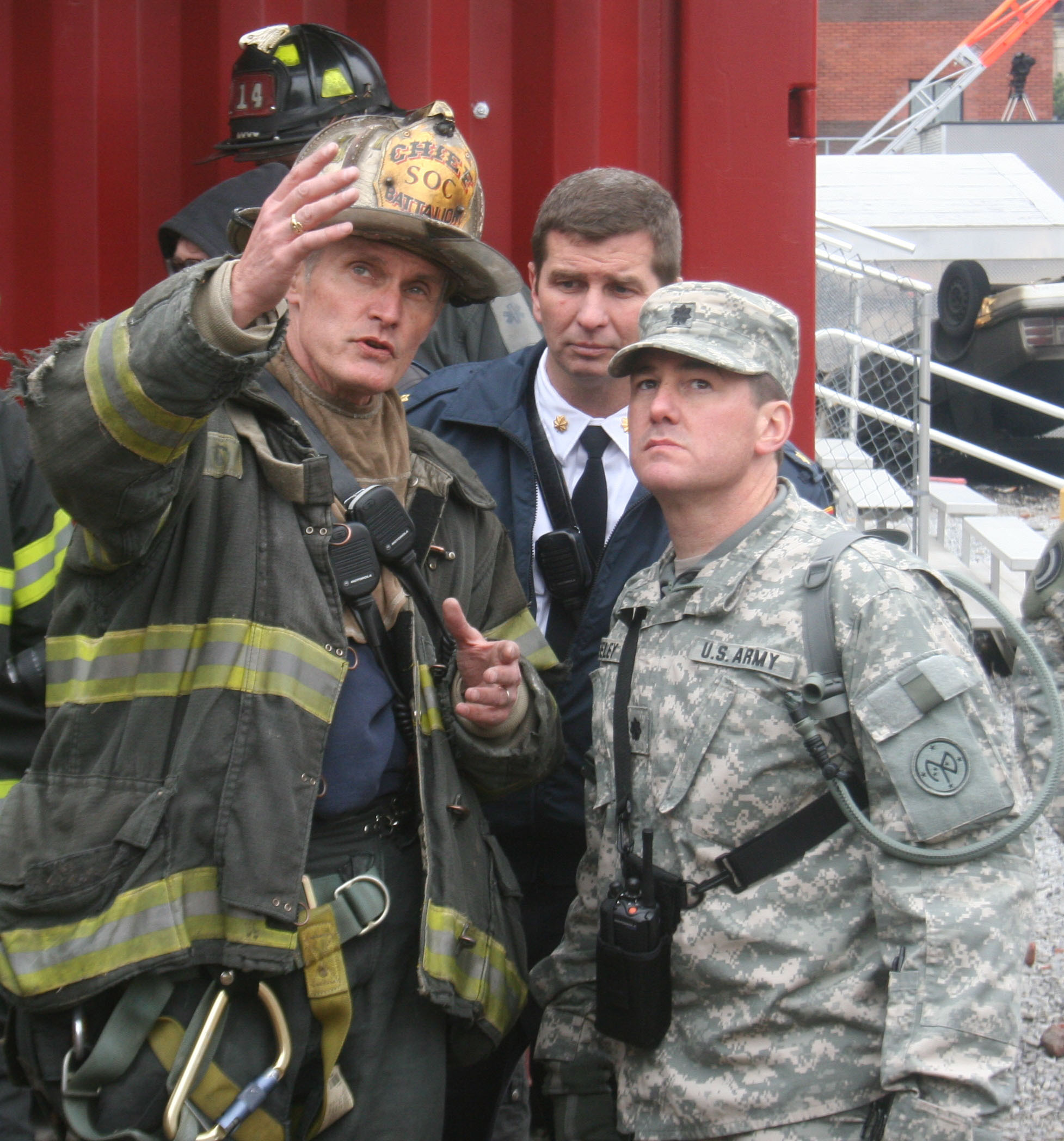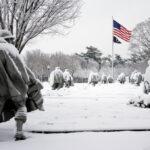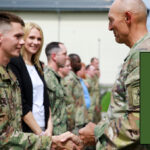
Broadening experiences are essential to the development of Army leaders—both Officer and Enlisted
Thanks to all those who provided the responses to the following question:
If we define a “broadening experience” as an educational opportunity or work assignment in which Army personnel are a small minority of the relevant population, are such experiences essential for developing effective senior leaders in the Army? Why, or why not?
All responses were edited for length and clarity.
1. Michael Wissemann, Lieutenant Colonel, U.S. Army
As defined in the question, broadening assignments are essential to reduce groupthink in a population where the default answer many times may be to reach for the proverbial hammer.
Military officers early in their careers are inculcated to address problems through a rigid system that is the Military Decision Making Process (MDMP). As an organization, we train leaders to develop three options; two are throw-aways and one is a strong, fully developed option. That is not necessarily in the best interest of the Army, the military profession, or the nation. This built-in rigidity often stifles innovation. As Steven Metz indicated in “Decision-making in OIF: Removing Saddam Hussein by Force”, the inability of the military’s most strategic leaders to think outside the box, or be comfortable with the risk introduced by such courses of action, led to exclusionary, small group, ad-hoc decision making model that left out most uniformed leadership.
The solution is to assign officers broadly across civilian opportunities. Assignments such as GEN David Petraeus’ time at Princeton and Georgetown increased his frame of reference and undoubtedly helped him to lead the Army to greater success throughout his career.
The ideal broadening experiences are away from the military altogether, and ideally, away from the D.C. bureaucracy. Academic institutions that do not necessarily reinforce a conservative mindset are also good options.
2. Matthew Reed, First Sergeant, U.S. Army and Student at the Sergeants Major Academy
Broadening experiences are essential to the development of Army leaders – both officer and enlisted. As leaders develop we form reference points in our minds based on our previous experiences. These points of reference become our comfort zones, fueling our instinctive decision-making ability. Think back to your time as PL and how those experiences shape who you are today. Certainly this useful at the battalion level and below; however it becomes less useful at higher echelons where ill-defined problems require originality.
It is worth noting that true broadening experiences rarely exist within Army formations. The purpose of broadening experiences is to develop (1) knowledge, skills, and attributes outside of branch or functional areas, (2) cross-cultural competency and provide interagency exposure, and (3) remove leaders from their comfort zones. For officers, educational fellowships offer exceptional venues to challenge points of reference and provide the cognitive dissonance necessary for senior leader development. For enlisted leaders, NCO career maps suggest Drill Sergeant/Recruiter as broadening opportunities. Yet these jobs clearly these do not meet the definition of “broadening” offered above.
At the organizational and strategic levels, NCOs must be able to bring substance to conversations on policy, strategy, and organizational problems. We must be able to question assumptions, present alternatives, and provide well-reasoned advice to our Commanders. Broadening experiences fuel this ability by challenging comfort zones and providing new structures, knowledge, and skills that are different from those experienced in the Army.
The challenge for the Army is to determine when to put broadening experiences into the developmental timelines of NCOs. Do we wait until the Sergeants Major Academy to recognize talent and begin to cultivate that talent? That seems too late. Or should we have a post-key developmental position window that affords high-potential NCOs an opportunity to pursue true broadening experiences? Whatever the Army chooses to do, it needs to do more.
3. Lieutenant Colonel Chad Storlie, U.S. Army Retired, former Special Forces officer
Today’s broadening assignments fail to sufficiently challenge and inform senior U.S. Army leaders with the skills that they desperately need.
The Army currently places select leaders in broadening assignments at top-tier graduate education programs and Fortune 100 businesses in the belief that these educational and business institutions are the source of knowledge and innovation for another top tier organization, namely the U.S. Army. This seems great, except that such experiences have little relevance to the Army’s mission.
The U.S. Army needs to understand how foreign populations in developing areas of the globe will understand, value, and challenge U.S. National Security interests in those same areas. The U.S. Army needs leaders who know how to succeed in the developing world, because that is the world of Army deployments.
Broadening programs need to deliver a better understanding of the global population base, the challenges of developing countries, and how the various elements of national power can support peaceful development. The U.S. Army needs to understand how Doctors Without Borders (MSF) performs their logistics, how does the UN get a village inoculated against disease, and how to less advantaged populations interact, understand, and believe the steady information stream from social media? Experience establishing a micro-finance program in a rural Indian slum or consistently delivering a stable crop of rice in areas prone to flooding are of more value to the future success of U.S. Army global operations.
Broadening assignments should inform future U.S. Army leaders how to succeed in a challenged world abroad and not how to perform as an aide-de-camp or as temporary staff member for a CEO. For example, the Army should consider sending capable officers to a one-year Master’s degree program followed by two six-month rotations working abroad in development programs where the success of the supported program is far from assured, but a deep, critical and essential learning experience is absolutely guaranteed.
TODAY’S BROADENING ASSIGNMENTS FAIL TO SUFFICIENTLY CHALLENGE AND INFORM SENIOR U.S. ARMY LEADERS WITH THE SKILLS THAT THEY DESPERATELY NEED.
-
Ryan McCannell, U.S. Agency for International Development (U.S.AID)
The U.S. Agency for International Development (USAID) hosts Army Fellows, as well as detailees from other services and a small number of military liaison officers (LNOs) from across the Joint Force, who collectively facilitate better civilian-military relations through their actions, presence, and work ethic. Broadening assignments have tremendous value for the receiving organization, not only in manpower terms, but also as a means of building personal relationships that demystify the military for civilian partners. Fellows and LNOs become essential cross-cultural ambassadors to partner organizations like USAID: they help establish and maintain the trust required to operate collaboratively during future crisis situations. For evidence, over the years, I have been pleased to note a growing number of USAID employees who show up for service birthdays and promotion ceremonies hosted by our Civil-Military Coordination team. As our employees befriend and work elbow-to-elbow with their peers in uniform, they inevitably want to honor and show up for the top-notch junior and mid-career officers who serve in these roles. I credit military broadening assignments as a key factor behind a gradual but measurable change in this civilian agency’s culture, which will pay dividends for the Army and the Nation going forward.
-
Mr. Tim McGrew
Broadening experiences provide opportunities for Army personnel to develop and strengthen their knowledge, skills, and abilities. These invaluable opportunities widen the perspective of future Army senior leaders. Additionally, such experiences increase awareness of the interconnectivity across a broad network of people and organizations. Senior leaders must support and participate in essential broadening assignments that include formal educational opportunities, unit assignments, and continuous learning to maintain high performance in dynamic environments that are complex and diverse.
Army personnel constantly face unstable environments. Therefore, senior leaders should ensure that true broadening experiences are mandatory throughout the development of future leaders. The three domains of leader development include institutional, operational, and self-development. Broadening widens leaders’ perspective of the current and future environment, and improves critical thinking skills. Attendance at professional military education or civilian schools provides formal frameworks of doctrine and theory that become the foundation for future performance. Operational assignments focus on the experiential development of Army personnel. The self-development domain depends on each leader’s motivation to explore topics outside of his or her career path.
Simultaneously, junior and senior personnel should seek each other out for mentorship opportunities, developing a career map that meets their definition of success. Through the interconnectivity of individuals in this Army profession, senior leaders must personally try to ensure that current and future leader seek opportunities for broadening experiences across each of the leader development domains. Their experiences will expand their perspective, skill, and knowledge. Subsequently, broadening experiences will remain relevant and essential for the development of effective senior leaders.
-
Paul Smith, Lieutenant Colonel, U.S. Army
The nation’s position in today’s strategic environment is challenged by revisionist powers that require joint and whole-of-government responses. Broadening assignments help prepare Army officers to make meaningful contributions to American national security strategy. They provide officers a glimpse into the cultures of other services and the processes involved with interagency collaboration, which is instrumental in addressing these challenges. Since broadening assignments are traditionally reserved for personnel with a likelihood of advancing to higher ranks, having these experiences as a field grade or senior company grade officer provides valuable exposure to this early in their careers, before they are thrust into situations requiring them to potentially lead mixed teams in combat situations.
Broadening assignments also serve as a bridge between the tactical, operational, and strategic levels of warfare. These opportunities broaden one’s aperture. Leaders learn to pay attention to more than just the closer 50 meter target (tactical level), to look for ways to link military plans and operations to national strategy, or to consider the industrial base’s ability to provide the resources required to support that strategy. Serving in a broadening assignment forces you to operate outside of your comfort zone and requires creative and critical thinking to address the ways and means required to meet our strategic end states. While others have said that broadening is not required for success at the battalion command level, it certainly becomes more so at the flag and general officer level.
The time spent in broadening positions reaps long-term rewards for the Army and should be continued. By expanding horizons, encouraging critical thinking, and in exposing personnel to different service and interagency cultures, broadening assignments are essential to developing strategic leaders.
The views expressed in this Whiteboard Exercise are those of the contributors and do not necessarily reflect those of the U.S. Army War College, U.S. Army, or Department of Defense.
Photo: New York Army National Guard Lt. Col. Dennis Deeley coordinates the confined space extraction of casualties with incident commander Chief Don Hayde from the New York City Fire Department’s Special Operations Command during a joint interagency training event in 2008.
Photo Credit: U.S. Army photo/LTC Richard Goldenberg
Other Releases in the Whiteboard series:
- THE ADMINISTRATION’S TOP FOREIGN POLICY PRIORITY (A WHITEBOARD)
- AFTER 2020, WHAT’S NEXT? (A WHITEBOARD)
- IMAGINING OVERMATCH: CRITICAL DOMAINS IN THE NEXT WAR (A WHITEBOARD)
- THAT ONE MOST IMPORTANT THING: (A WHITEBOARD)
- SHALL WE PLAY A GAME?
(WARGAMING ROOM) - WAR(GAMING) WHAT IS IT GOOD FOR? (A WHITEBOARD)
- LEADERSHIP ROLE MODELS IN FICTION REVISITED: (A WHITEBOARD)
- WHAT GOOD IS GRAND STRATEGY? (A WHITEBOARD)
- THE UNITED NATIONS’ GREATEST ACCOMPLISHMENT: (A WHITEBOARD)
- LEADERSHIP ROLE MODELS IN FICTION: (A WHITEBOARD)




